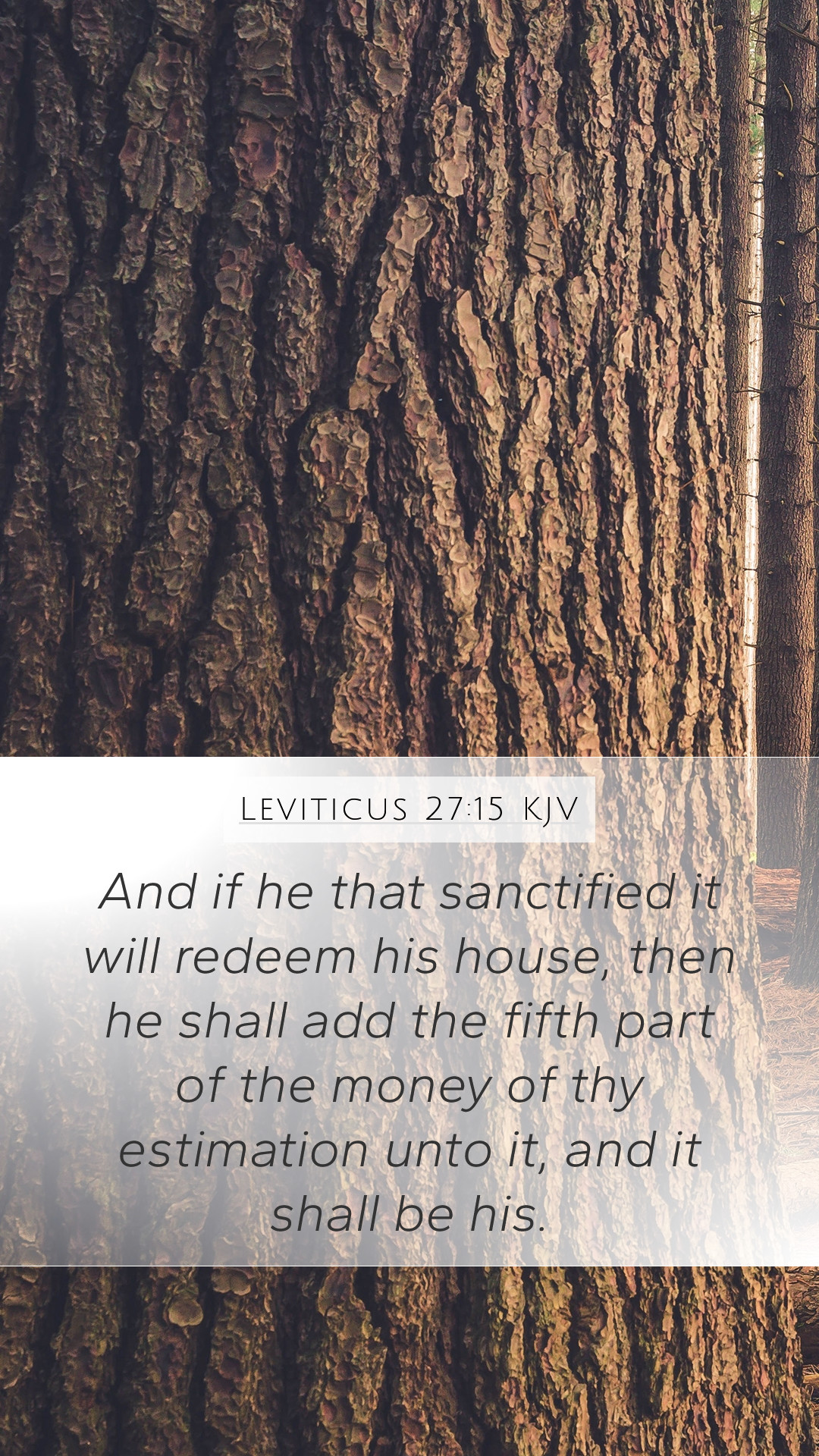Understanding Leviticus 27:15
Leviticus 27:15 states: "And if he that sanctified it will redeem his house, he shall add the fifth part of the money of thy estimation unto it, and it shall be his." This verse addresses the process of redemption concerning houses that have been dedicated to the Lord.
Bible Verse Commentary Overview
The interpretation of Leviticus 27:15 requires a nuanced understanding of the laws concerning vows and dedications in ancient Israel. Matthew Henry highlights the importance of the sanctity of vows made before God, emphasizing that once something is dedicated to the Lord, it holds a place of value and respect in the community and in the eyes of God.
Albert Barnes elaborates on the concept of redemption, explaining that God allowed for a means of restoring property dedicated to Him through monetary compensation. The addition of a fifth part signifies a premium on the value, underscoring the seriousness and dedication of what was consecrated. This not only serves as a financial principle but also emphasizes a spiritual reality regarding one's commitment to the Lord.
Adam Clarke presents additional context, noting that this provision was meant for those who, upon reconsideration of their vows, might seek to retrieve what was dedicated. The verse reflects themes of grace, redemption, and the seriousness of sacred commitments.
Contextual Significance
In understanding Leviticus 27:15, we must consider its placement within the broader framework of the Law given to Israel. The chapter deals with the sanctity of vows made to God and the redemption process associated with various items, including animals, houses, and even persons.
Key Themes
- Redemption: The notion that one can reclaim what has been dedicated, albeit at an additional cost, reflects God's mercy and understanding of human fallibility.
- Commitment to God: It underscores the importance of honoring one's commitments. This principle can still be applied today in how believers approach their vows and promises to God.
- Value of Dedication: The verse speaks to the inherent value in dedicating something to God, suggesting that everything belongs to Him and should be treated with reverence.
Application in Life
For modern believers, Leviticus 27:15 serves as a reminder of the seriousness with which we ought to approach our commitments to God and His work. When we dedicate our resources, time, or talents to God, we should do so with a sincere heart, aware of the implications and responsibilities that come with those commitments.
This verse challenges individuals to contemplate the depth of their dedication and to be mindful of the cost associated with reclaiming or redeeming what has been set apart for God’s purposes.
Bible Study Insights
This scripture invites deep Bible study insights and analysis, particularly in understanding how the Old Testament Laws reflect God’s character and expectations for His people.
Related Cross-References
- Exodus 22:7 - Concerns about stolen or lost property and restitution.
- Numbers 18:14 - Sacred things dedicated to the Lord.
- Matthew 5:33-37 - Jesus' teaching on oaths and promises.
- Malachi 1:14 - The importance of offering and the seriousness of vows.
- Romans 12:1 - Presenting ourselves as living sacrifices to God.
Conclusion
In conclusion, Leviticus 27:15 offers rich lessons on dedication and the protocols for redeeming what belongs to the Lord. It compels believers to hold sacred the promises made to God while emphasizing the grace found within the redemption process. Engaging deeply with such verses equips Bible study groups with tools and resources for a more profound understanding of Scripture, highlighting the ongoing relevance of Old Testament teachings in contemporary faith.


